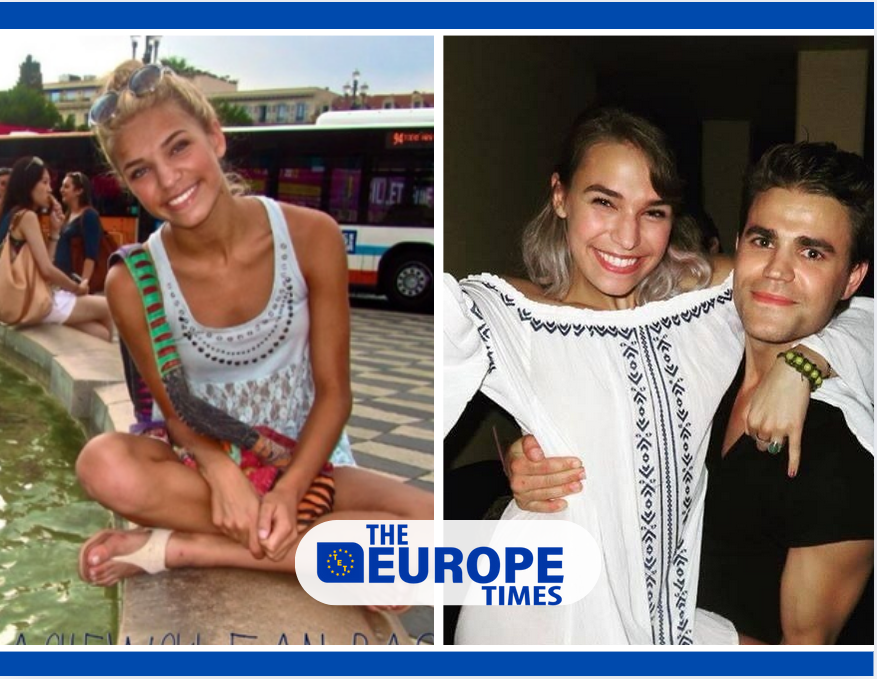Julia Wasilewski is a Canadian theatre designer, educator, and researcher whose creative work bridges traditional stagecraft with innovative digital storytelling.
As an Assistant Professor in the Department of Drama at the University of Lethbridge (U of L), she guides the next generation of stage artists while continuing to design for professional productions across Canada.
Her career exemplifies how artistry, pedagogy, and technology can merge to create powerful theatrical experiences that challenge audiences and inspire students alike.
| Details | Information |
|---|---|
| Full Name | Julia Wasilewski |
| Date of Birth | Not Publicly Known |
| Age (as of 2025) | Estimated 30s–40s |
| Place of Birth | Canada |
| Nationality | Canadian |
| Religion | Christianity (not publicly stated but culturally inferred) |
| Ethnicity | Polish-Canadian |
| Zodiac Sign | Not Available |
| Parents | Agnieszka Wasilewska and Thomas Wasilewski |
| Siblings | Leah Wasilewski, Paul Wesley (Wasilewski), and Monica Wasilewski |
| Marital Status | Not Disclosed |
| Children | Not Known |
| Residence | Lethbridge, Alberta, Canada |
| Education | Graduate studies in Theatre Design and Production |
| Occupation | Theatre Designer, Educator, Researcher |
| Current Position | Assistant Professor in the Department of Drama, University of Lethbridge |
| Teaching Areas | Scenic Design, Costume Design, Digital Rendering, Sustainable Theatre Practices |
| Known For | Integrating sustainability, digital innovation, and inclusive storytelling in stage design |
| Artistic Style | Minimalist geometry, rich textures, emotional lighting, digital scenography |
| Influences | European modernism, Canadian scenography, environmental ethics |
| Professional Theatre Work | New West Theatre, Theatre Outré, Sage Theatre, and others |
| Research Interests | Digital scenography, eco-design, immersive and interdisciplinary performance |
| University Contributions | Research-creation projects, mentorship programs, and eco-theatre advocacy |
| Awards & Recognition | Regional awards for scenic design and costume innovation; university research grants |
| Advocacy | Sustainability in stagecraft, inclusive storytelling, and mentorship for emerging designers |
| Community Work | Mentorship and design support for youth and community theatre projects in Alberta |
| Hobbies | Travel, photography, exploring architecture, nature-inspired design |
| Famous Quote | “Design is empathy made visible.” |
| Notable Traits | Innovative, empathetic, sustainability-driven, collaborative educator |
| Current Focus | Expanding research in immersive theatre and eco-friendly design |
| University Affiliation | University of Lethbridge, Faculty of Fine Arts |
| Field of Expertise | Scenic & Costume Design, Digital Storytelling, Performance Technology |
| Nationality Confirmed By | University of Lethbridge Faculty Bio |
Early Life and Family Background of Julia Wasilewski
Born and raised in Canada to parents Agnieszka Wasilewska and Thomas Wasilewski, Julia grew up in a family that valued education, creativity, and cultural heritage.
Her Polish-Canadian roots fostered an early appreciation for expressive storytelling through visual design.
She often credits her upbringing—and the influence of her siblings Leah Wasilewski, Paul Wesley (Wasilewski), and Monica Wasilewski—for nurturing the curiosity and collaborative spirit that later defined her theatre work.
Education and Academic Formation
Julia’s formal journey into design began with studies in Theatre Design and Production, where she combined scenic art, costume construction, and lighting technology.
She later pursued graduate-level research in stage design, focusing on how spatial composition and texture affect audience perception.
Her academic rigor and artistic sensitivity positioned her as both a theorist and practitioner, allowing her to move seamlessly between studio, classroom, and stage.
Professional Beginnings in Theatre Design
After completing her studies, Julia Wasilewski entered the Canadian theatre scene as a scenic and costume designer.
Her early collaborations included regional theatres, university productions, and independent companies that valued experimental aesthetics.
Working on smaller stages allowed her to test bold concepts—merging tactile materials with projected imagery—to evoke emotional realism within minimalist spaces.
Joining the University of Lethbridge
Julia joined the University of Lethbridge Faculty of Fine Arts as an Assistant Professor of Scenic and Costume Design, bringing both academic insight and industry experience to the program.
At U of L, she teaches courses in stage design, digital rendering, and collaborative theatre creation, emphasizing process over product and encouraging students to think visually, critically, and sustainably.
Her mentorship style is frequently praised for combining professional discipline with creative empathy.
Teaching Philosophy and Pedagogical Approach
Julia Wasilewski believes that design education should cultivate curiosity, adaptability, and technical mastery.
Her classes emphasize hands-on model building, computer-aided design (CAD), and story-driven conceptualization.
She advocates for inclusive storytelling—design that respects diverse narratives and identities—and urges students to explore how materials, lighting, and costume choices express cultural meaning.
Signature Design Style and Artistic Influences
Julia’s design aesthetic blends minimalist geometry with rich texture and subtle color psychology.
Influenced by European modernism and contemporary Canadian scenography, she often integrates light as an emotional agent rather than a functional tool.
Her work reveals how scenic environments can breathe, shift, and respond to the actor’s movement—turning space itself into a living collaborator.
Notable Productions and Collaborations
Over her career, Wasilewski has contributed to numerous stage productions, including university mainstages, professional tours, and interdisciplinary performances.
Highlights include collaborations with New West Theatre, Sage Theatre, and Theatre Outré, where her scenic designs transformed traditional venues into immersive worlds.
Each project reflects her belief that storytelling begins with space—that every line, prop, and texture carries emotional intent.
Research and Creative Scholarship
At the University of Lethbridge, Julia also pursues research-creation projects exploring the intersection of performance, sustainability, and digital scenography.
Her studies investigate how projection mapping, virtual design labs, and eco-friendly materials can re-imagine stagecraft for the 21st century.
Through conferences and peer-reviewed publications, she contributes to academic discussions on design ethics and pedagogical innovation in performing arts.
Awards and Recognition
Julia’s dedication to both art and education has earned her nominations and local awards for Outstanding Scenic Design and Costume Innovation in regional festivals.
She has also received university grants supporting sustainable design initiatives and mentorship programs for emerging theatre artists.
Her reputation as a thought-leader continues to grow within Canada’s artistic-academic community.
Mentoring the Next Generation of Designers
Beyond the classroom, Professor Wasilewski supervises senior design projects, guiding students from concept to final production.
Her mentorship emphasizes real-world collaboration, preparing graduates to work confidently in professional theatre, film, and live-event industries.
Many of her students credit her mentorship for helping them secure design assistantships and residencies across North America.
Advocacy for Sustainability in Stage Design
A defining theme in Julia’s work is environmental sustainability.
She promotes re-use of set materials, low-impact fabrication, and energy-efficient lighting practices.
Through workshops and faculty initiatives, she encourages theatre departments to adopt green production standards, proving that creative design can coexist with ecological responsibility.
Digital Innovation and Virtual Performance
In the wake of online and hybrid performances, Julia Wasilewski has been at the forefront of integrating digital tools into theatre education.
Her projects experiment with VR modeling, augmented-reality scenery, and 3D printing for stage components.
These innovations help students adapt to an evolving industry where digital literacy is as crucial as artistic vision.
Interdisciplinary Collaboration Across the Arts
Julia frequently collaborates with music, dance, and new-media faculty, creating cross-disciplinary performances that merge live movement with interactive design.
Her cross-faculty projects at U of L highlight the university’s commitment to experiential learning, where boundaries between designer, performer, and audience dissolve into shared creation.
Community Engagement and Regional Theatre Support
Beyond academia, Wasilewski contributes to community theatre in Alberta and western Canada.
She mentors youth artists, offers design consultations for non-profit groups, and participates in public art initiatives.
Her outreach work embodies her belief that theatre design should be accessible, collaborative, and community-driven.
Balancing Artistic Practice and Academic Responsibility
Balancing teaching, research, and professional design can be challenging, yet Julia Wasilewski thrives at this intersection.
She views academia not as separate from artistry but as an extension of it—each classroom project informs her professional work, and each production enriches her teaching methodology.
This synergy defines her career and cements her status as a leading figure in Canadian theatre education.
Future Projects and Creative Outlook
Looking ahead, Julia plans to expand her research in immersive theatre and sustainable materials, potentially developing an open-source database for eco-design resources in performance.
She also aims to curate an international exhibition featuring collaborative designs by students and professionals, reinforcing Canada’s contribution to global scenography.
Personal Life and Inspiration
Away from the stage, Julia Wasilewski enjoys travel, photography, and exploring historical architecture—sources that continually feed her artistic imagination.
She often finds inspiration in natural landscapes and everyday textures, which later appear subtly in her design palettes.
Her personal philosophy: “Design is empathy made visible.”
Conclusion: Julia Wasilewski’s Enduring Legacy in Theatre Arts
Through her visionary approach, Julia Wasilewski has become a key figure in shaping how Canadian theatre embraces sustainability, digital evolution, and inclusive storytelling.
Her dual commitment to education and artistry ensures that her influence extends beyond any single production—living on in every student she mentors and every stage she transforms.
As the performing arts continue to evolve, Julia’s work at the University of Lethbridge stands as a testament to creativity grounded in integrity, innovation, and heart.
Frequently Asked Questions (FAQs)
1. Who is Julia Wasilewski?
Julia Wasilewski is a Canadian theatre designer, educator, and Assistant Professor at the University of Lethbridge, specializing in scenic and costume design.
2. What does Julia Wasilewski teach at the University of Lethbridge?
She teaches stage and costume design, digital rendering, and sustainable theatre practices within the Department of Drama.
3. What is Julia Wasilewski’s design style?
Her work combines minimalist structure, textural depth, and emotive lighting, often integrating digital and eco-conscious methods.
4. Has Julia Wasilewski won any awards?
She has received regional recognition and university grants for outstanding scenic design and sustainability initiatives.
5. Where is the University of Lethbridge located?
The University of Lethbridge is in Lethbridge, Alberta, Canada, renowned for its strong Fine Arts faculty.
6. Is Julia Wasilewski involved in community projects?
Yes—she frequently collaborates with local theatres and arts organizations, mentoring young designers and promoting accessible creative education.
7. What are Julia Wasilewski’s future research interests?
Her current focus includes sustainable materials, immersive scenography, and digital tools for virtual performance design.
For More Update and Stories Visit: The Europe Times











